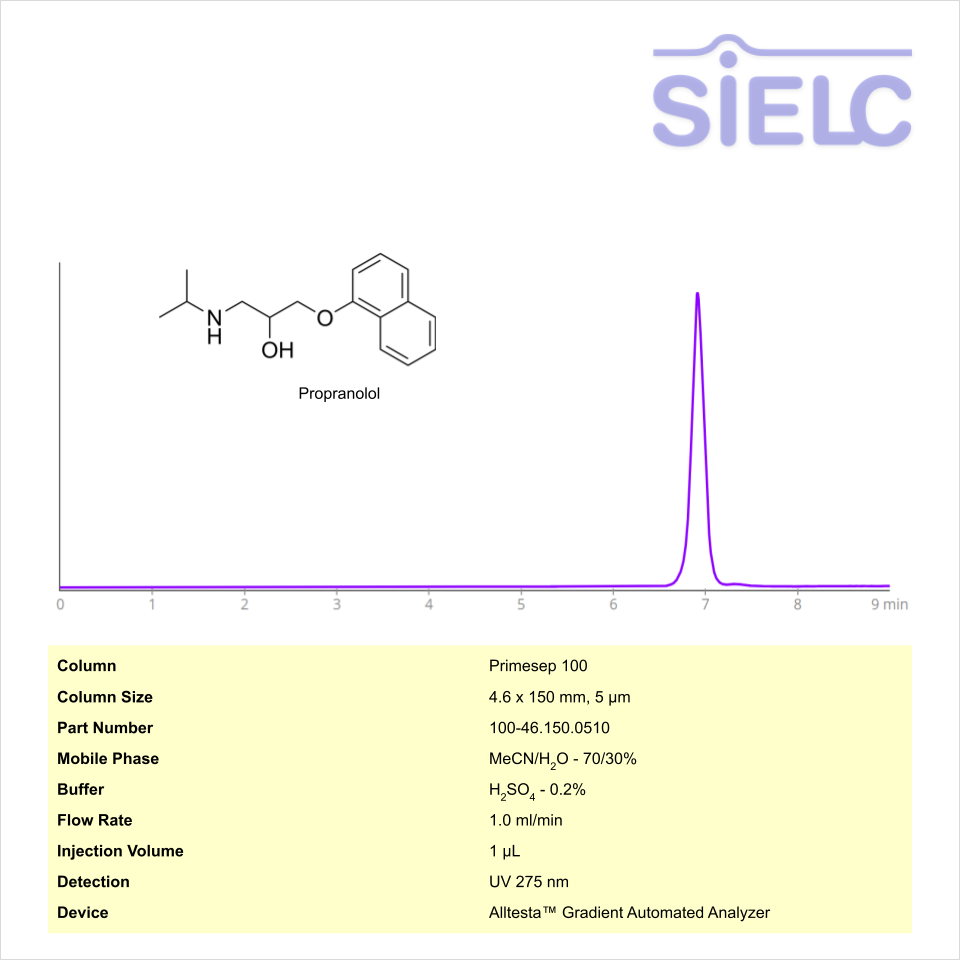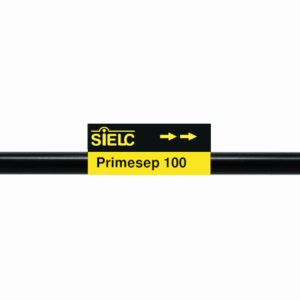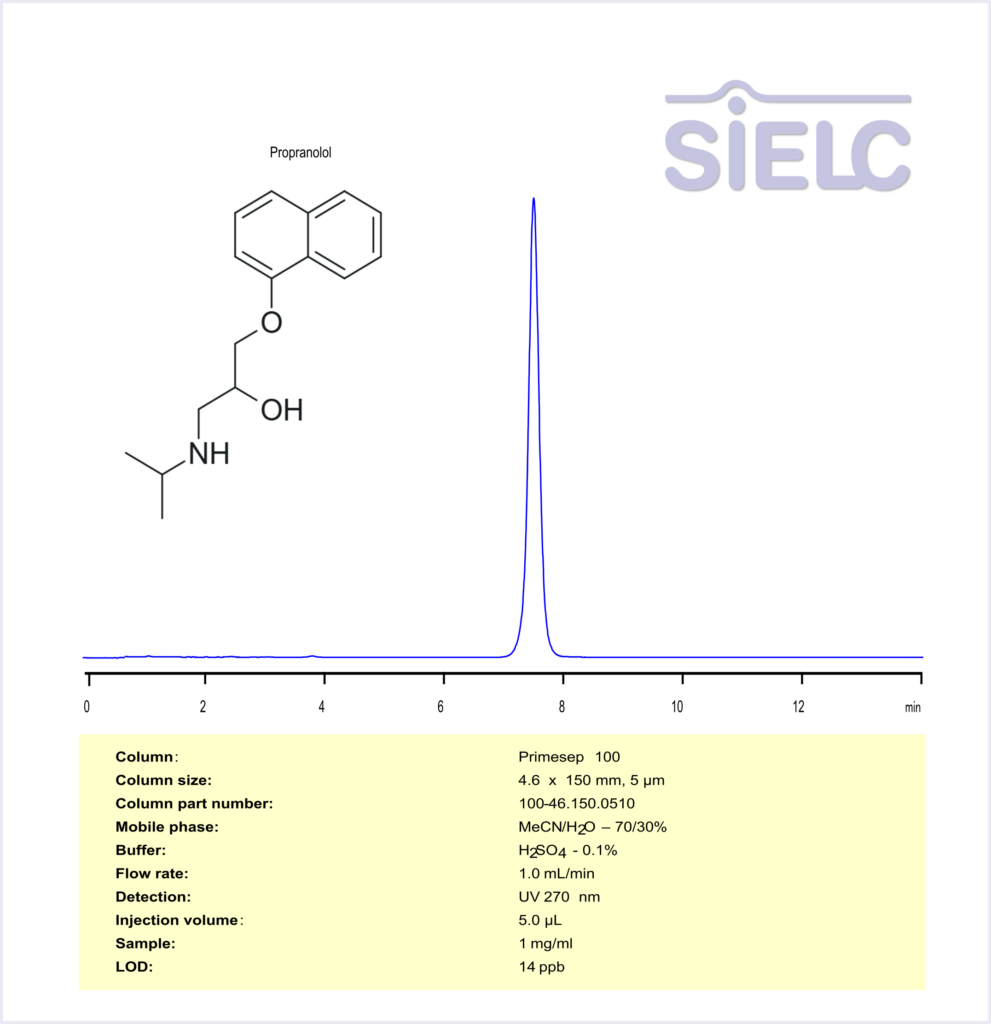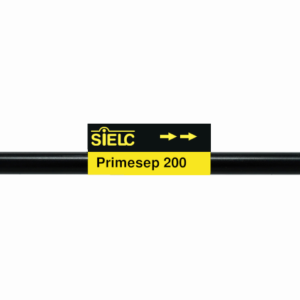| CAS Number | 13013-17-7 |
|---|---|
| Molecular Formula | C16H21NO2 |
| Molecular Weight | 259.349 |
| InChI Key | AQHHHDLHHXJYJD-UHFFFAOYSA-N |
| LogP | 3.0 |
| Synonyms |
|
Applications:
UV-Vis Spectrum of Propranolol
December 24, 2025
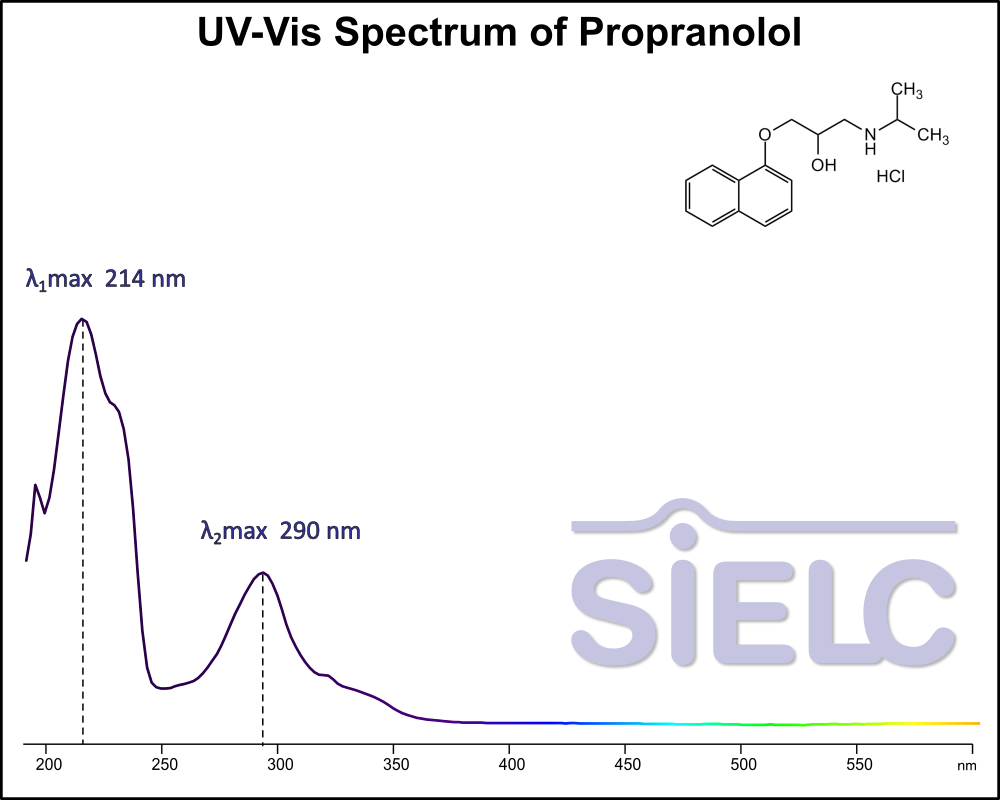
If you are looking for optimized HPLC method to analyze Propranolol check our HPLC Applications library
For optimal results in HPLC analysis, it is recommended to measure absorbance at a wavelength that matches the absorption maximum of the compound(s) being analyzed. The UV spectrum shown can assist in selecting an appropriate wavelength for your analysis. Please note that certain mobile phases and buffers may block wavelengths below 230 nm, rendering absorbance measurement at these wavelengths ineffective. If detection below 230 nm is required, it is recommended to use acetonitrile and water as low UV-transparent mobile phases, with phosphoric acid and its salts, sulfuric acid, and TFA as buffers.
For some compounds, the UV-Vis Spectrum is affected by the pH of the mobile phase. The spectra presented here are measured with an acidic mobile phase that has a pH of 3 or lower.

HPLC Method for Analysis of Propranolol on Primesep 100 Column on Alltesta™
November 18, 2025
HPLC Method for Propranolol on Primesep 100 by SIELC Technologies
High Performance Liquid Chromatography (HPLC) Method for Analysis of Propranolol
Propranolol is an organic compound with the molecular formula C16H21NO2. It is primarily used to treat hypertension, angina, migraine headaches, and hypertrophic subaortic stenosis. As a beta-blocker, it works through affecting nerve impulse responses. You can find detailed UV spectra of Propranolol and information about its various lambda maxima by visiting the following link.
Propranolol can be retained and analyzed using the Primesep 100 stationary phase column. The analysis utilizes an isocratic method with a simple mobile phase consisting of water and acetonitrile (MeCN) with phosphoric acid as a buffer. Detection is performed using UV.
| Column | Primesep 100, 4.6 x 150 mm, 5 µm, 100 A, dual ended |
| Mobile Phase | MeCN – 70% |
| Buffer | Sulfuric Acid |
| Flow Rate | 1.0 mL/min |
| Detection | UV 275 nm |
| Class of Compounds | Phenols |
| Analyzing Compounds | Propranolol |
Application Column
Primesep 100
Column Diameter: 4.6 mm
Column Length: 150 mm
Particle Size: 5 µm
Pore Size: 100 A
Column options: dual ended

HPLC Method for Analysis of Propranolol on Primesep 100 Column
July 14, 2025
HPLC Method for Propranolol on Primesep 100 by SIELC Technologies
High Performance Liquid Chromatography (HPLC) Method for Analysis of Propranolol
Propranolol is an organic compound with the molecular formula C16H21NO2.
Properties:
Appearance: Typically a stable, odorless, white to off-white crystalline powder.
Molecular weight: ~259.34 g/mol
Solubility: Soluble in water and ethanol.
Uses: A non-selective beta-blocker. Used to treat a variety of conditions, both cardiovascular and non-cardiovascular.
Propranolol can be retained and analyzed using the Primesep 100 stationary phase column. The analysis utilizes an isocratic method with a simple mobile phase consisting of water, acetonitrile (MeCN), and sulfuric acid. Detection is performed using UV at 270 nm.
| Column | Primesep 100, 4.6 x 150 mm, 5 µm, 100 A, dual ended |
| Mobile Phase | MeCN – 70% |
| Buffer | H2SO4 – 0.1% |
| Flow Rate | 1.0 ml/min |
| Detection | UV 270 nm |
| LOD | 14 ppb |
*LOD was determined for this combination of instrument, method, and analyte, and it can vary from one laboratory to another even when the same general type of analysis is being performed.
| Class of Compounds | Synthetic Organic Compound |
| Analyzing Compounds | Propranolol |
Application Column
Primesep 100
Column Diameter: 4.6 mm
Column Length: 150 mm
Particle Size: 5 µm
Pore Size: 100 A
Column options: dual ended

HPLC Method for Analysis of Propranolol
May 10, 2016
Propranolol is a synthetic, non-cardioselective beta-adrenergic antagonist that is used for the therapy of hypertension, cardiac arrhythmias, angina pectoris, hyperthyroidism, as well as after a heart attack to improve the chance of survival. Dizziness, lightheadedness, or tiredness may occur after the intake of the medication. Primesep 200, a reverse phase column, contains embedded acidic ionizable groups and can retain Propranolol. The method is UV compatible and can be used as a general approach for analyzing similar compounds.
| Column | Primesep 200, 3.2×100 mm, 5 µm, 100A |
| Mobile Phase | MeCN – 40% |
| Buffer | H3PO4 – 0.1%, |
| Flow Rate | 0.5 ml/min |
| Detection | UV, 270 nm |
| Class of Compounds |
Drug, Acid, Hydrophilic, Ionizable, Supplements |
| Analyzing Compounds | Propranolol |
Application Column
Primesep 200
The Primesep family of mixed-mode columns offers a wide variety of stationary phases, boasting unprecedented selectivity in the separation of a broad array of chemical compounds across multiple applications. Corresponding Primesep guard columns, available with all stationary phases, do not require holders. SIELC provides a method development service available to all customers. Inquire about our specially-tailored custom LC-phases for specific separations.
Select options

